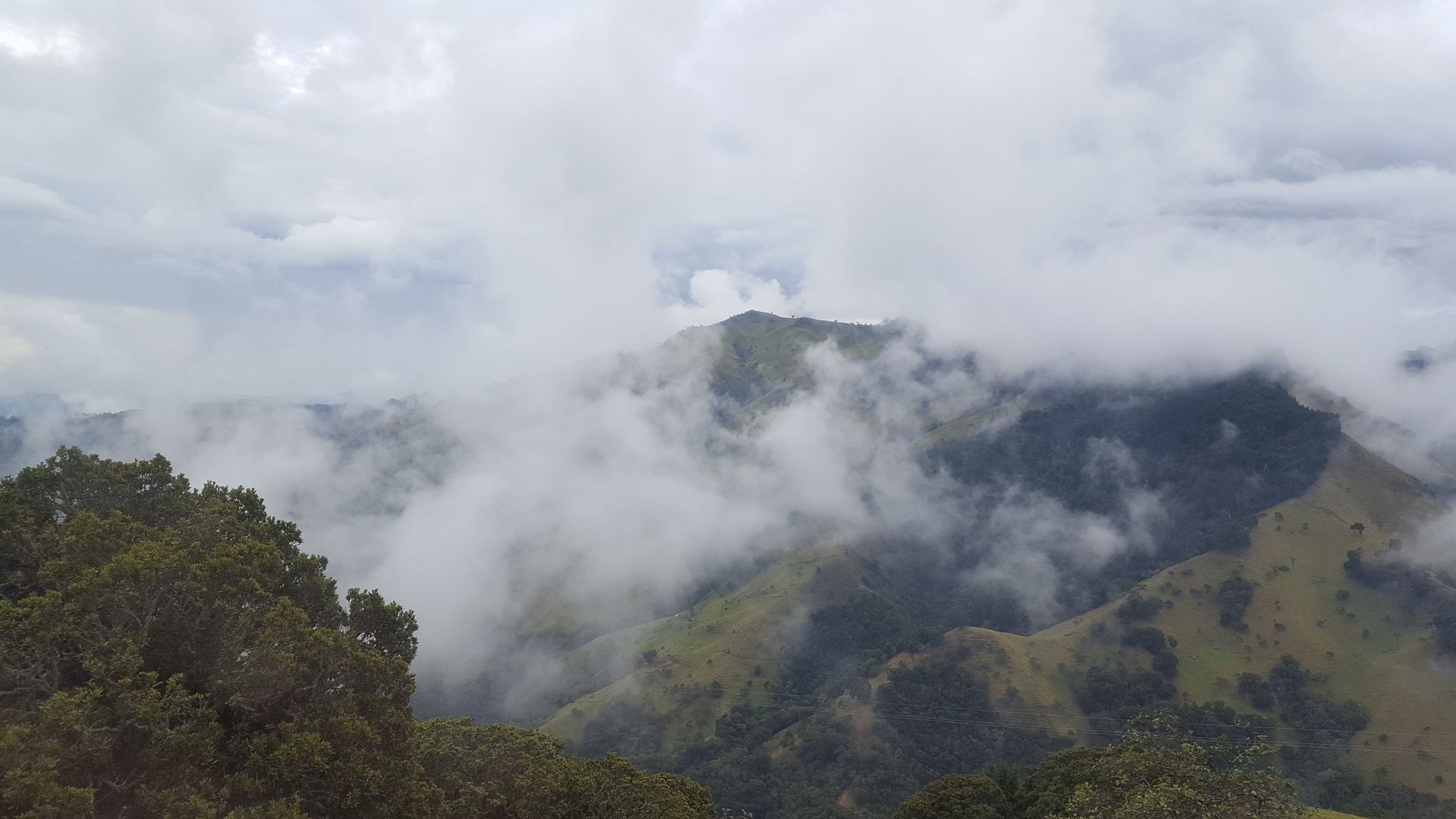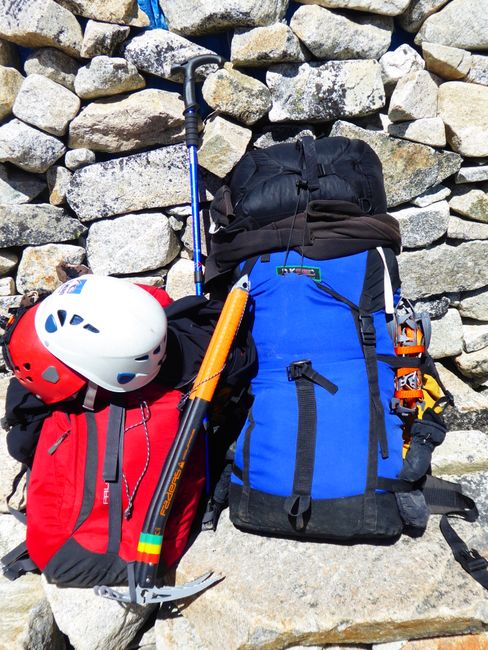Arequipa's mermaid flashback and a 'very special day' on the way to Bolivia
خپور شوی: 27.11.2018
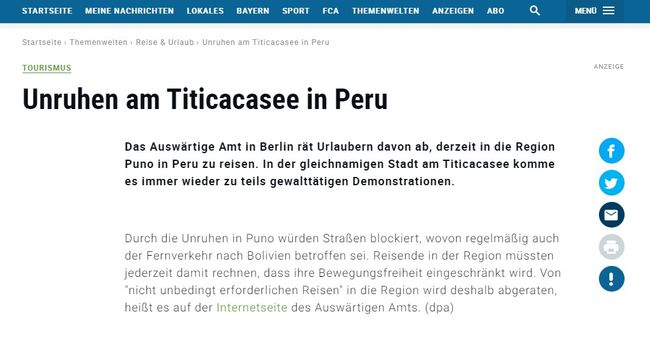
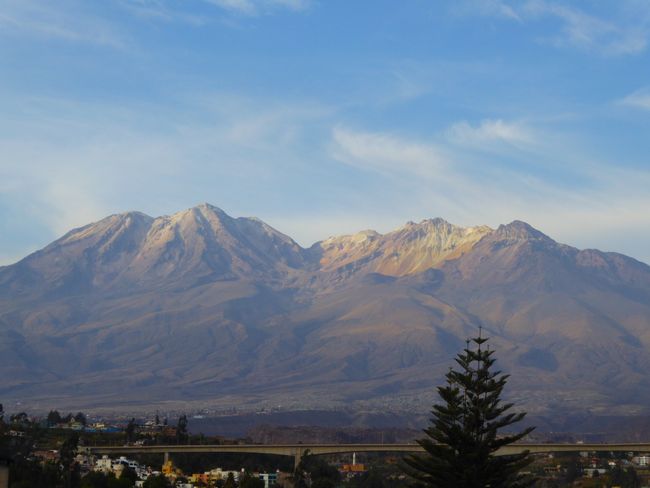
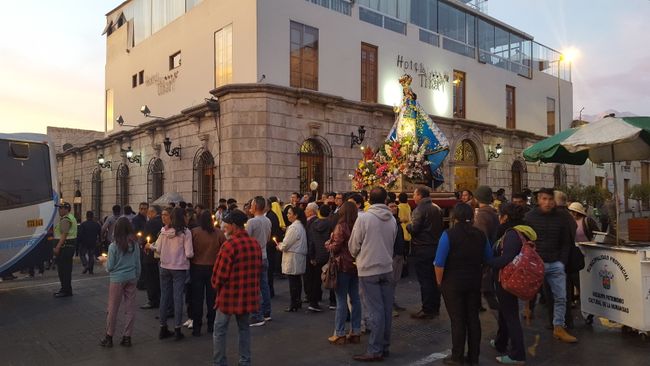
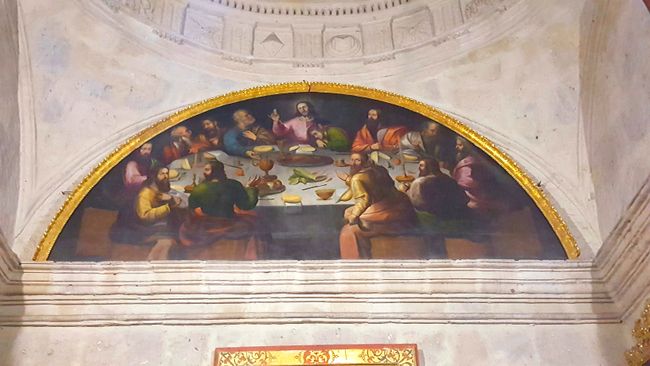
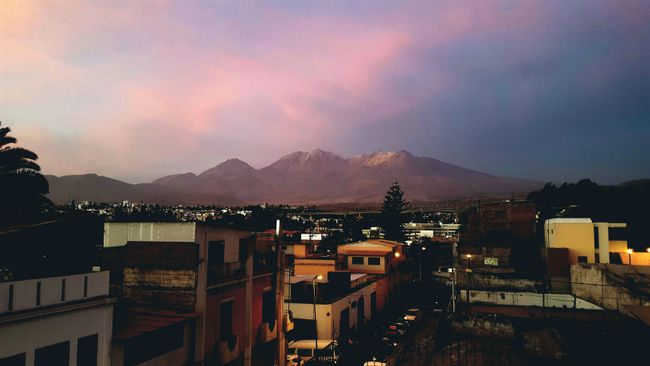
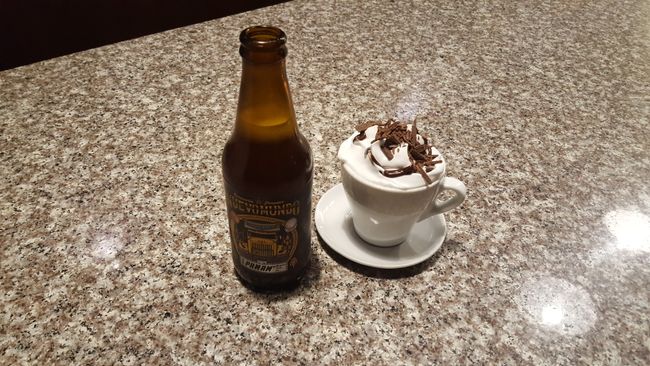
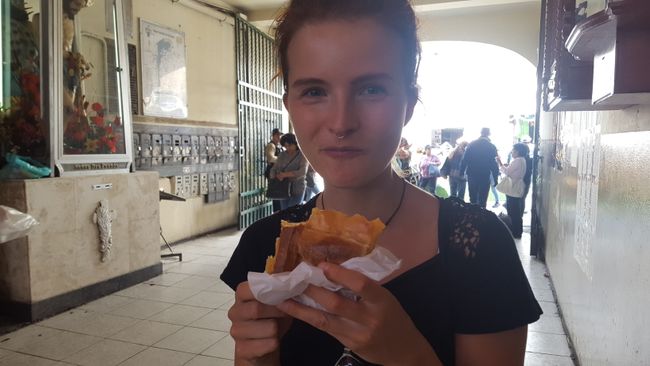
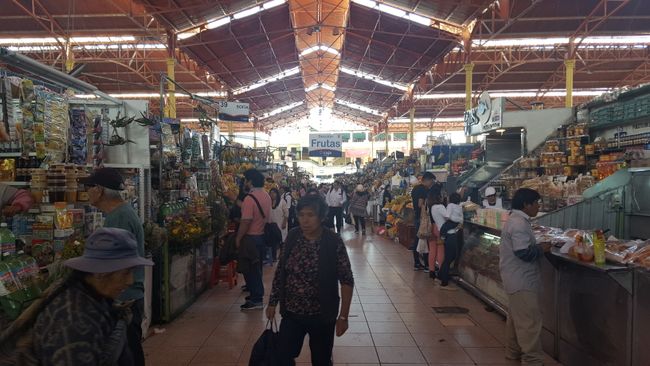
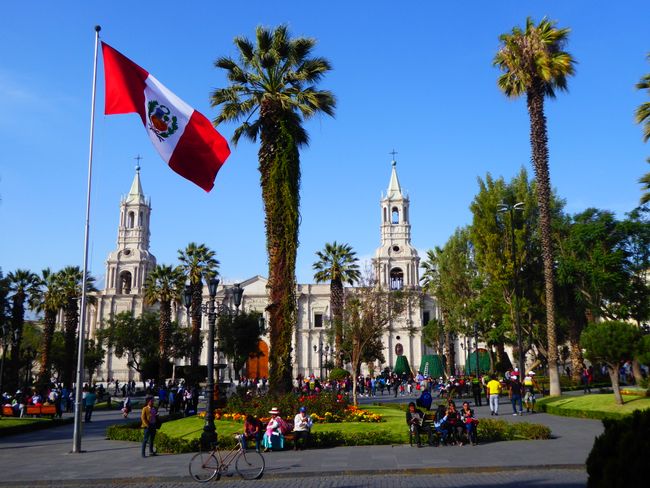
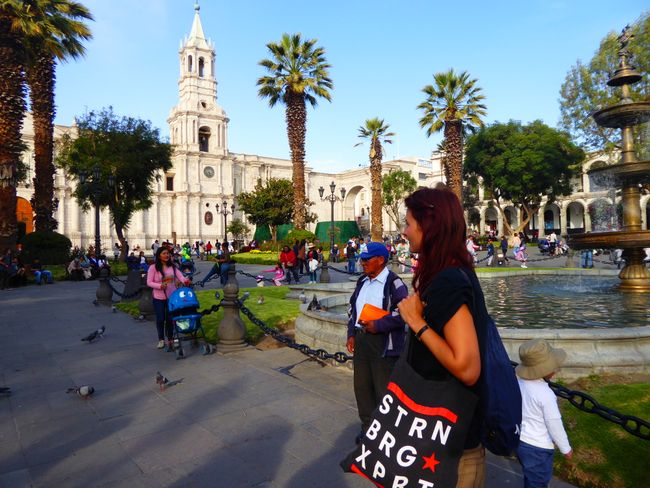
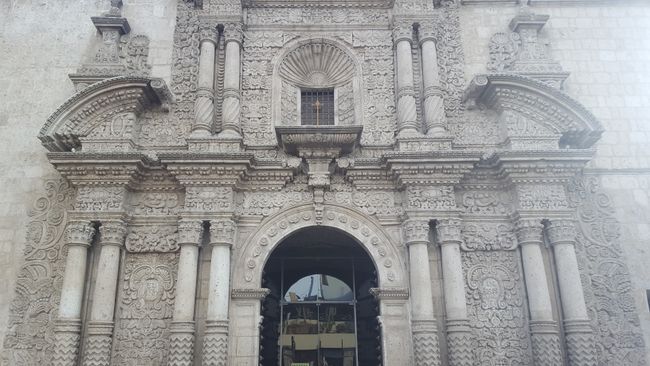
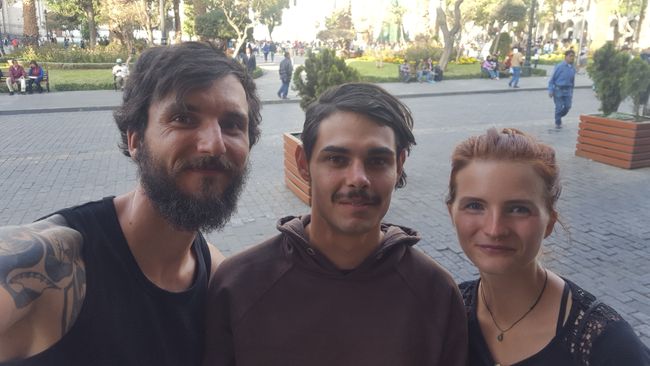
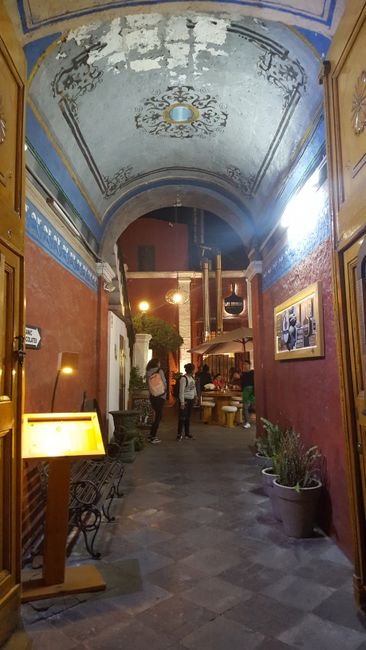
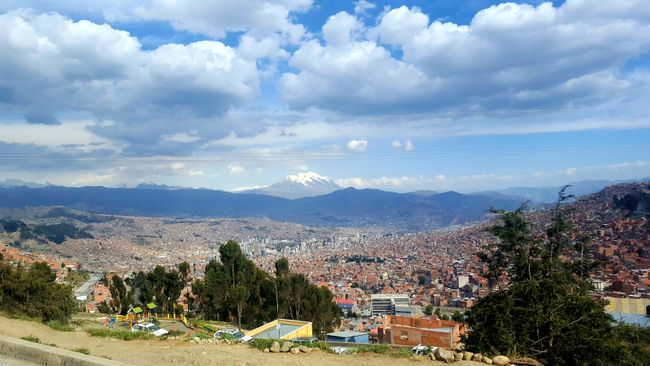
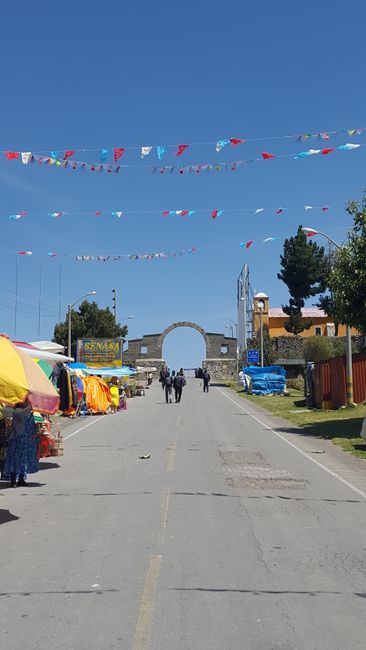
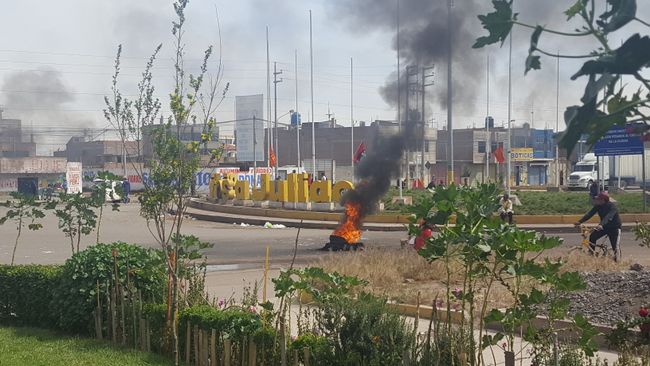
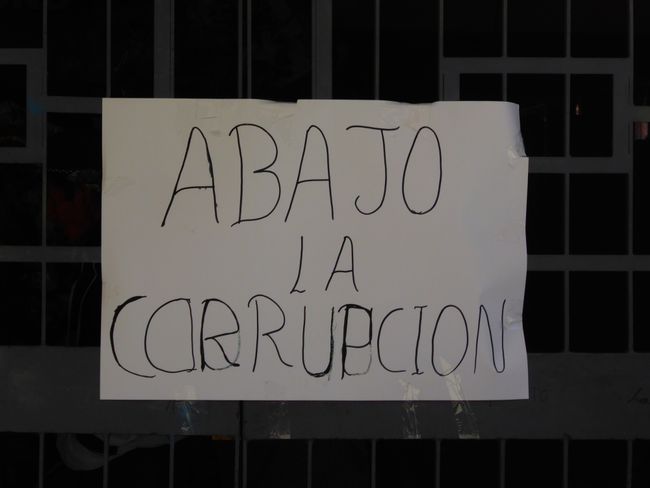
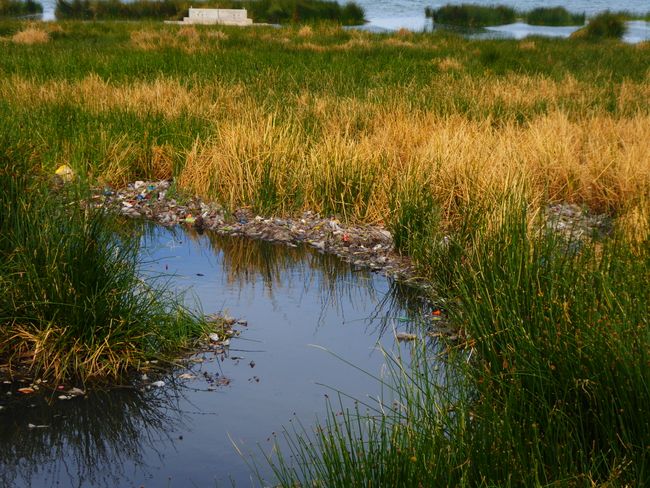
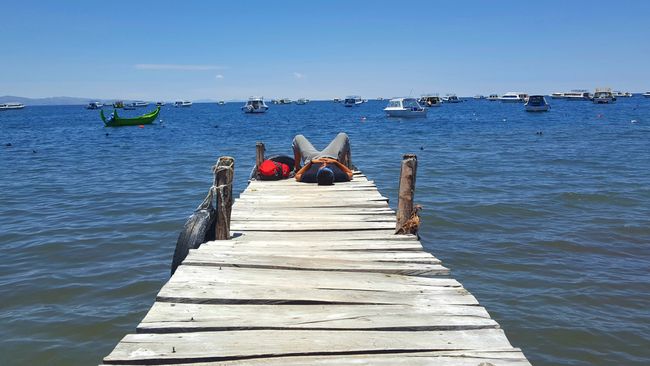
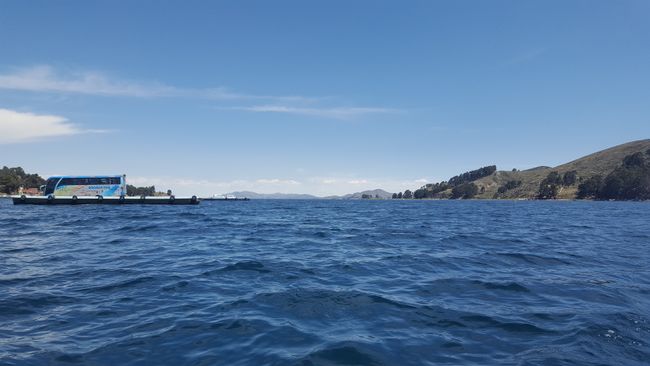
خبر پاڼه کې ګډون وکړئ
November 25, 2018
Arequipa, the always warm and very dry city, welcomes us early in the morning on the bus. Once again, we were able to split up on the bus so that each person has 2 seats. Annika can slumber tied up on them. Carsten is still looking for a suitable sleeping position.
We take an Uber (a taxi app) directly and cheaply to the hostel. Breakfast is served there. The sun is shining on our rooftop terrace. It is warm and we are happy. After the rainy and cloudy days in Cusco, it is a blessing.
Arequipa is surrounded by the volcanoes Chachani (the Brave), Misti (the Lord), and Picchu Picchu (the Mountain Mountain ^^) at an altitude of 2300 m. We have the best view of two of them from our rooftop terrace.

After breakfast, we have scheduled Skype calls with 3 parties. Auntie from Switzerland, parents from Thuringia, and Richard and Jana from Leipzig take advantage of our offer and the good internet here.
At 2 p.m., we arrange to meet our comrade Massimo at Plaza de Armas. The main square (which is almost called the same in every South American city) boasts a large basilica, a green park with fountains, and several representative buildings with terraces.
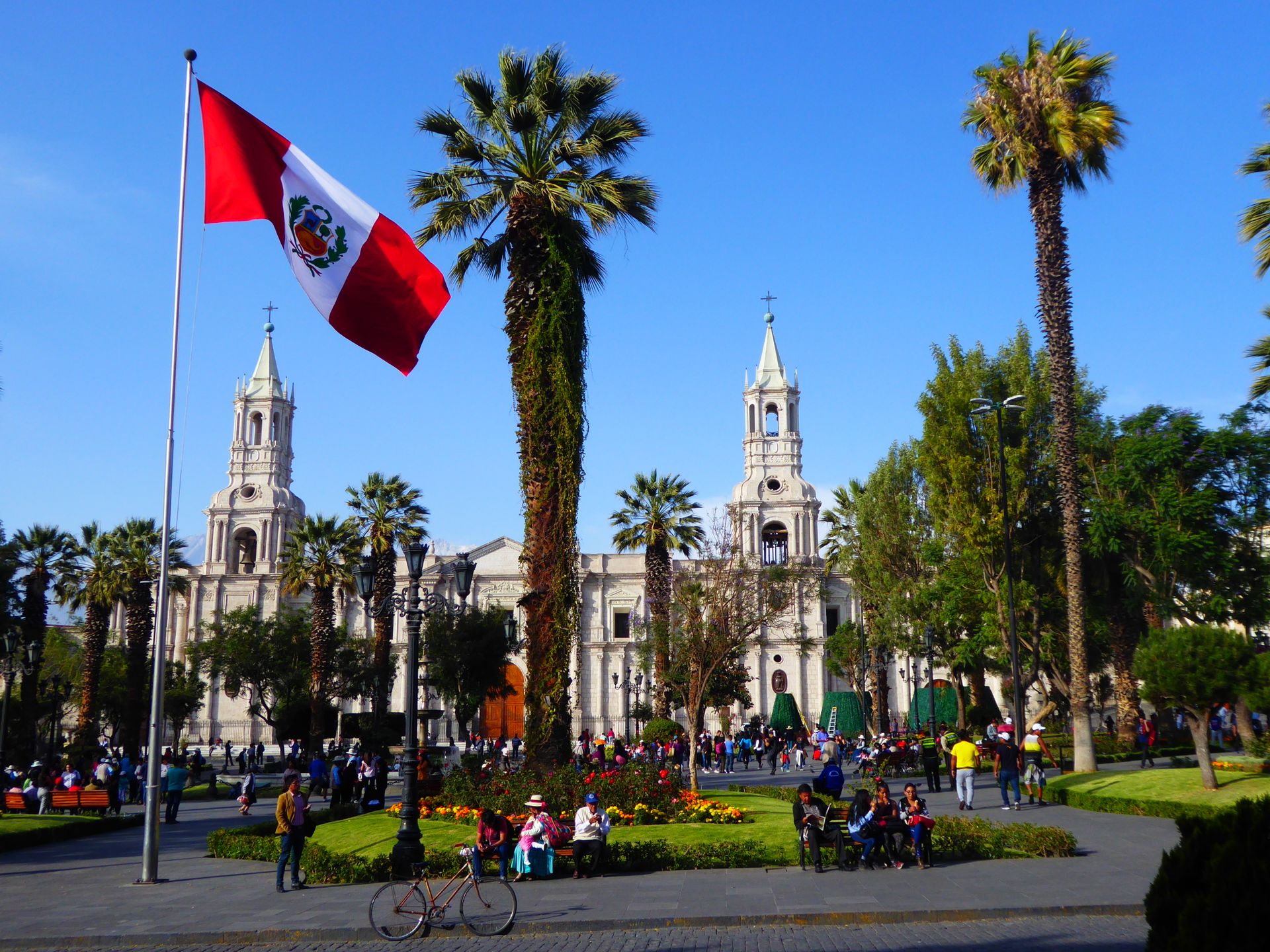

Together, we explore the surroundings in search of a market to stock up on food. Unfortunately, the Sunday here is still sacred, and all major food markets are closed. On the way back, we briefly attend the mass. Here, the Virgin Mary is carried along the edge.
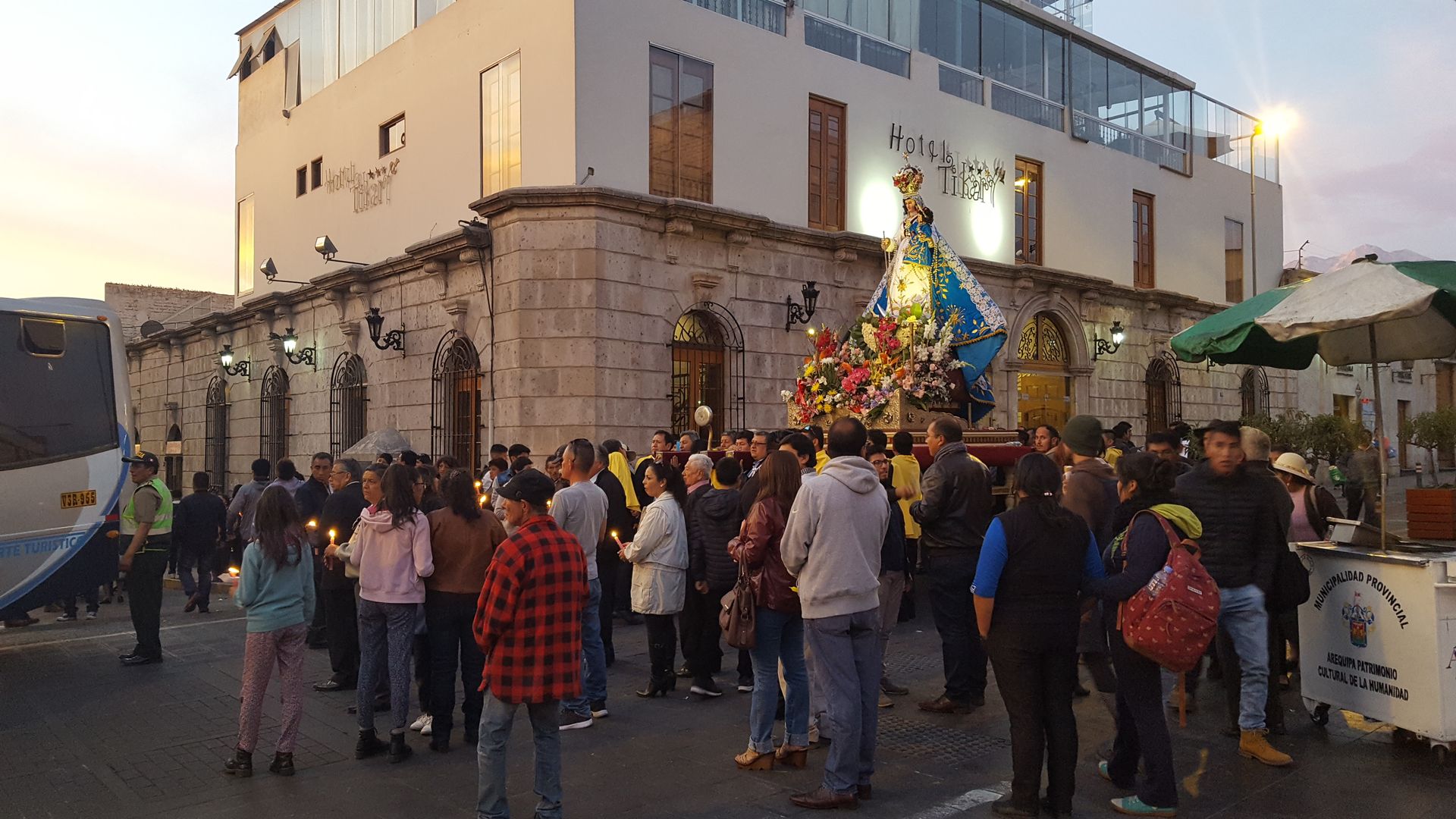
The city, with its very colonial character, is both old and modern. Low ornate walls line up next to each other. Modern houses are few and far between. However, behind the colorful splendid buildings, there are hidden modern cafes, boutiques, and restaurants. During the day, you don't notice the beauty of the countless courtyards - you admire facades instead. As soon as the sun sets, the doors open, everyone crawls out of their houses, and socializes in the romantically illuminated patios.
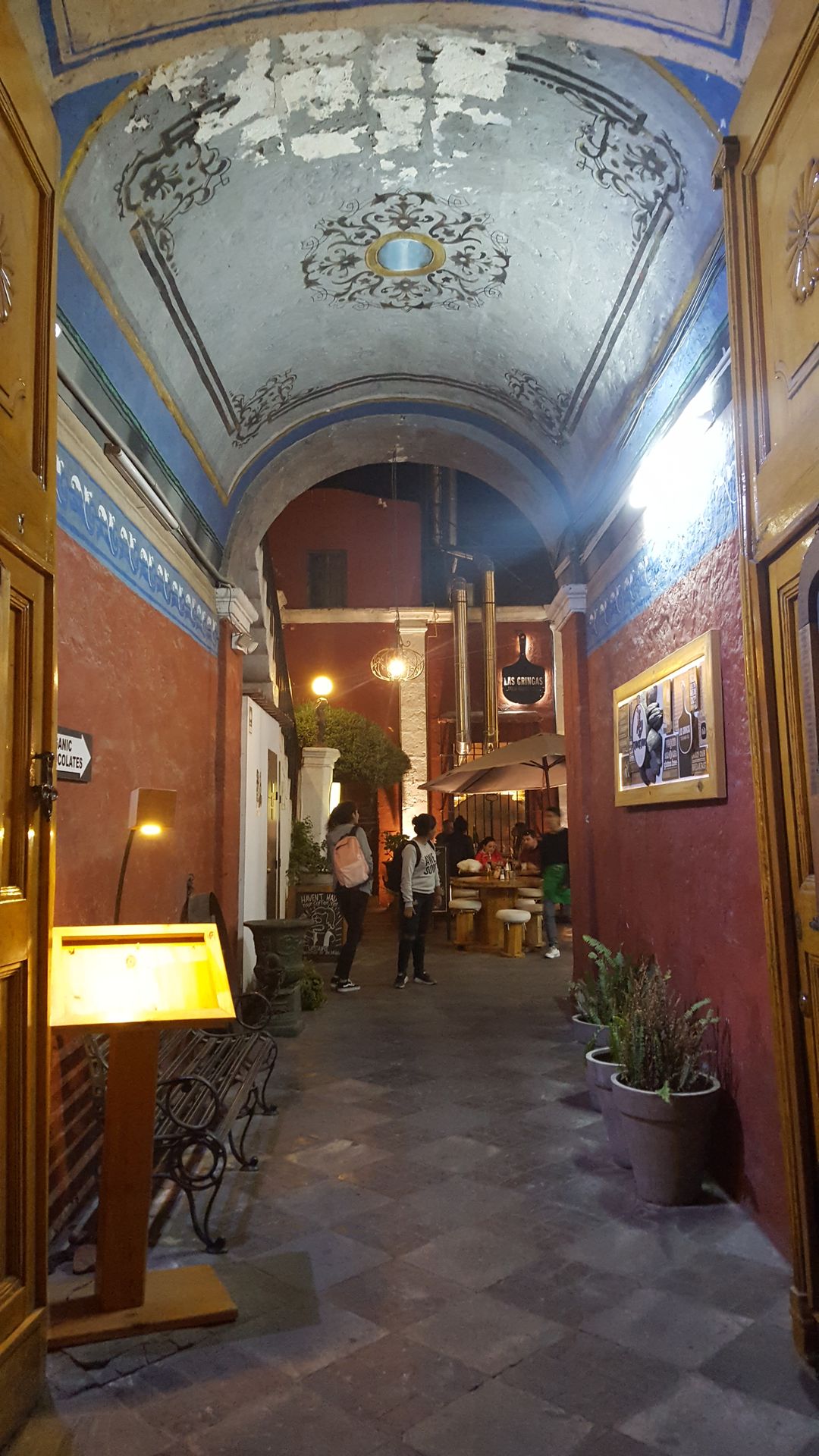
Sleep in, morning exercise, and coffee.
Well... not exactly sleep in... because at 6 a.m., we both have a flashback. The garbage truck arrives and plays the steel drum version of the hit song "Under the Sea" from the movie The Little Mermaid through the streets. An earworm that will haunt us the whole time.
We try again to visit the Mercado San Camillo which was closed yesterday. The market is crowded with packed stalls. The division seems to be fruits and vegetables, meat, household goods, and... hats. We treat ourselves to yogurt and a piece of cake. We don't need sombreros today. By the way, the roof was constructed by Mr. Gustave Eiffel.

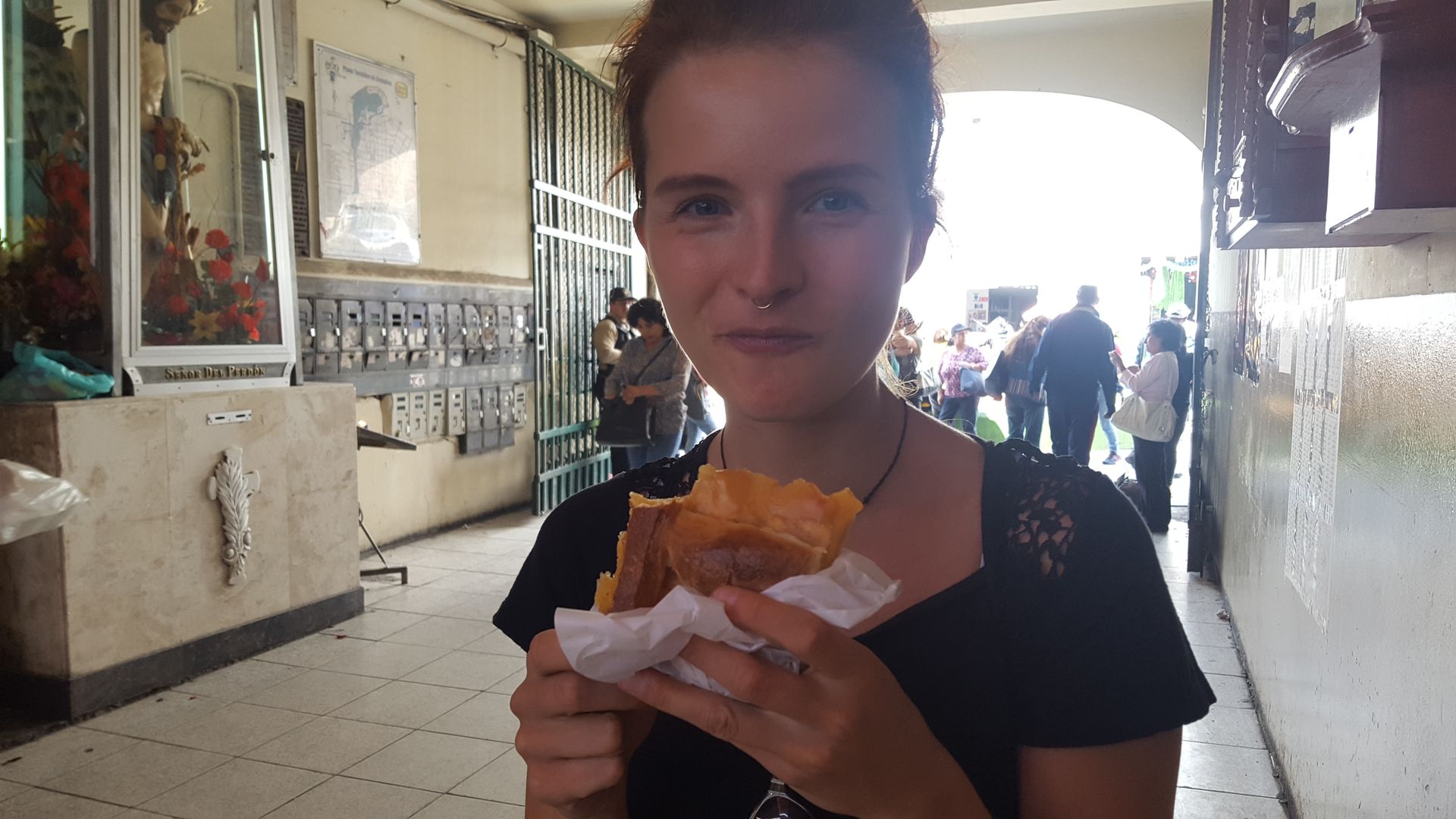
The afternoon is filled with a free walking tour through the city center. Interesting details about Inca history (which we already know) are shared. For example, in one church, the Last Supper is depicted. It is a round table with guinea pigs and corn as the main dish.
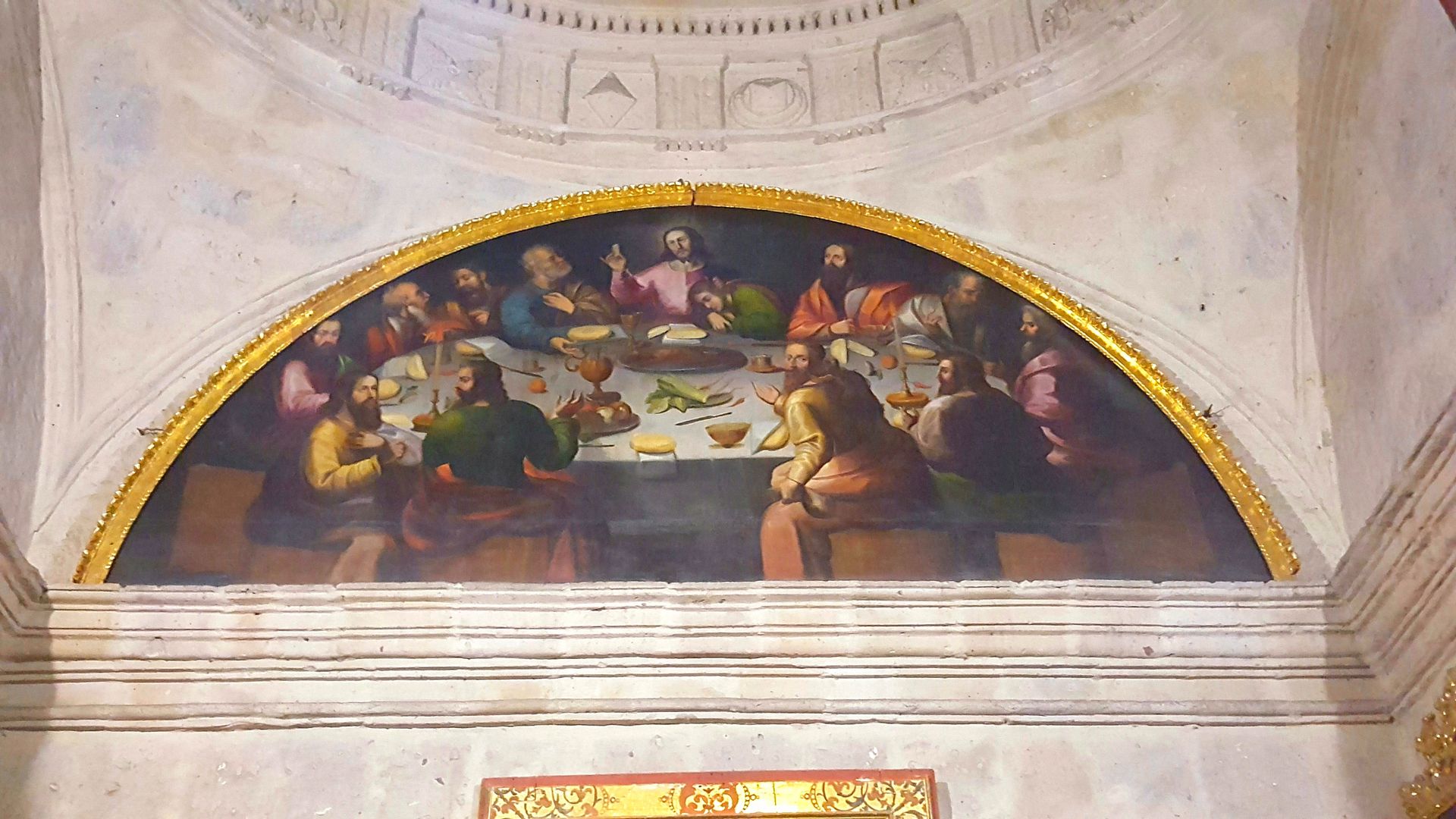

At the end, there is a question and answer session. 3 prizes. Anyone who knows the answer wins a prize. Out of 20 people, we win 2. A hot chocolate and a craft beer.

Unfortunately, we have to say goodbye to Massimo again on this day. He is moving on to the canyons in the area, which we deliberately skipped. Hopefully, the farewell is not forever.
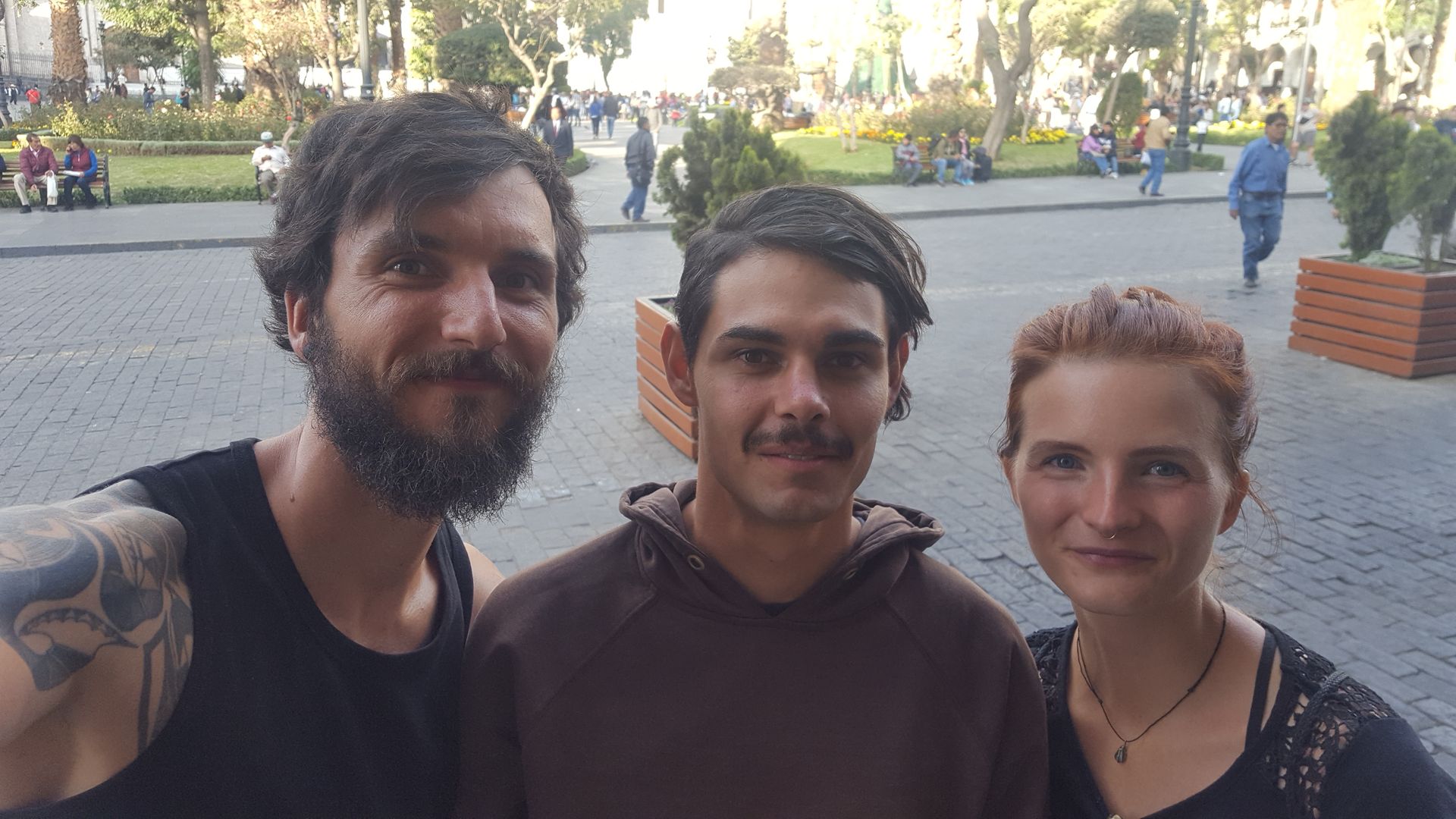
November 27, 2018
Sleep in, morning exercise, and coffee, as well as another visit to the market to treat ourselves to a piece of cake. Then we spend time on the rooftop terrace and enjoy the bright sun at 26°C.
November 28, 2018
At 12:30 a.m., we finally board the bus. According to the schedule, our bus should have departed at 11:30 p.m. However, at the counter, they already told us that we would not leave before 12:30 a.m. Our plans were already shaky because we booked a connecting bus from Puno to Bolivia at 7 a.m. So far, we spent time at the bus station, from which the cleaning ladies kicked us out. Actually, we are quite happy about that. This way, we don't have to endure the chanting of the ticket sellers who are still loudly calling for non-existent customers in the middle of the night.
Another half hour passes. We've had enough. We get off the bus and scold the bus driver and then the tourism agency, who still haven't cleared the bus for departure, hoping that someone will get lost and coincidentally want to go to Puno in the middle of the night. Annika's loud voice eventually has an effect. It is 1:20 a.m., and our timely arrival in Puno is almost impossible.
The bus is old. Every time the driver shifts, he cheerfully stirs in the gearbox. Windows cannot be closed, which makes the bus very cool. By morning, an ice layer has formed on the puddles in the "toilet".
At 6:30 a.m., our bus stops. Burning barricades made of tires and trash are set on fire in front of us. The Puno region is on strike against corruption in the country and is preventing any progress with any means of transportation.
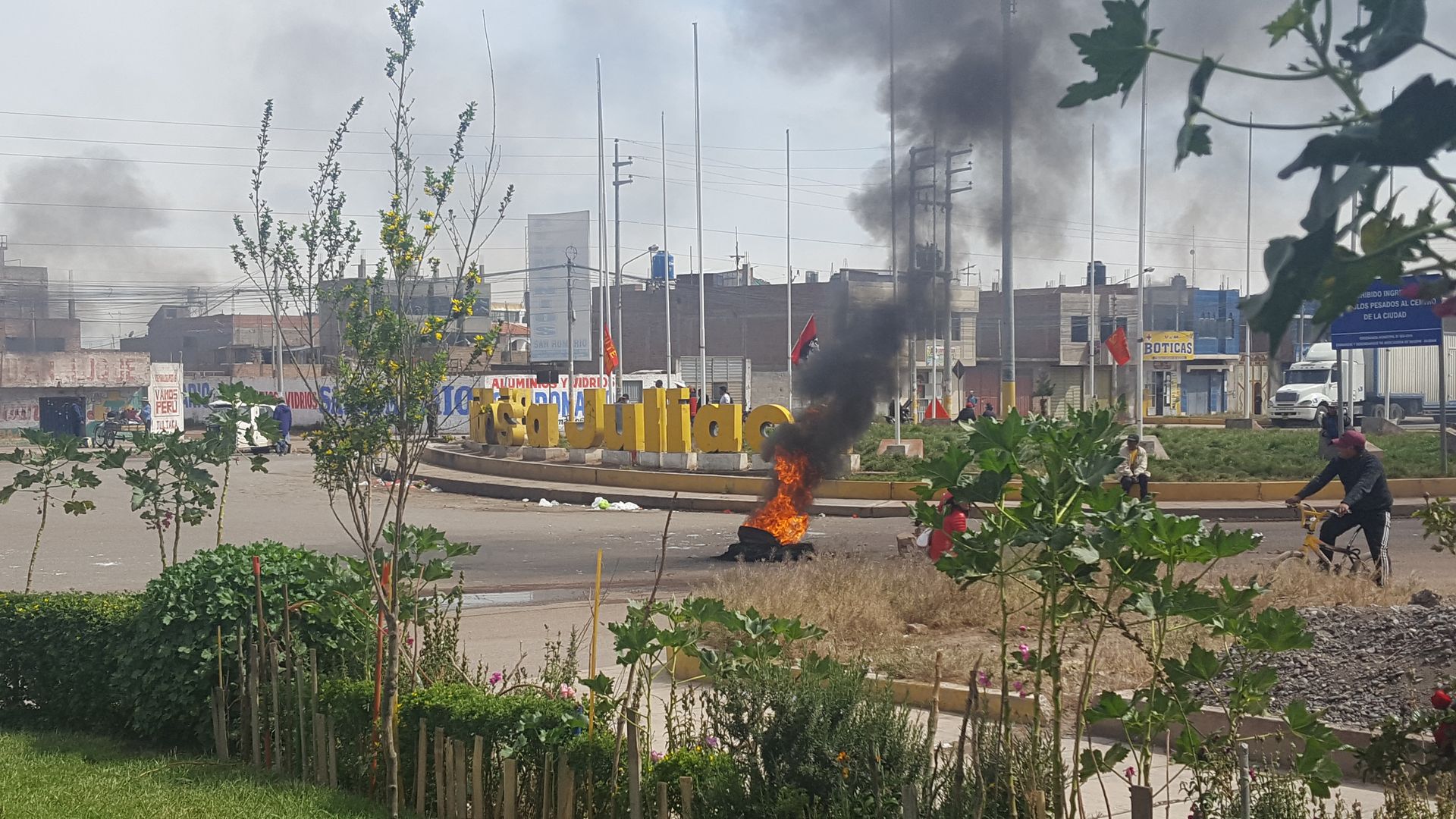
Our driver retreats. 200m away from the scene, we stand there, incredulous and helpless. What now? An hour passes. The attempt to reach Puno from the city of Julianca with a collective taxi fails due to unsuccessful negotiations. We have no choice. We grab our backpacks and have to walk through the "crisis area". For half an hour, we pass celebrating, playing volleyball, and partially masked passersby. A queasy feeling comes over us.
At the checkpoint (a place where policemen gather), we ask a motorbike rider if he can take us further. He says it might be possible to go as far as the city limits. We get in, and immediately people gather to block the streets. We try to bypass them as much as possible. At Plaza de Armas, the police's offensive units gather with armored vehicles. At one point, we get too close to the demonstration, and a stone flies towards our tent-covered vehicle. Clearly nervous, we and the driver continue. 200m later, he kicks us out. He doesn't want to continue. So, we walk again.
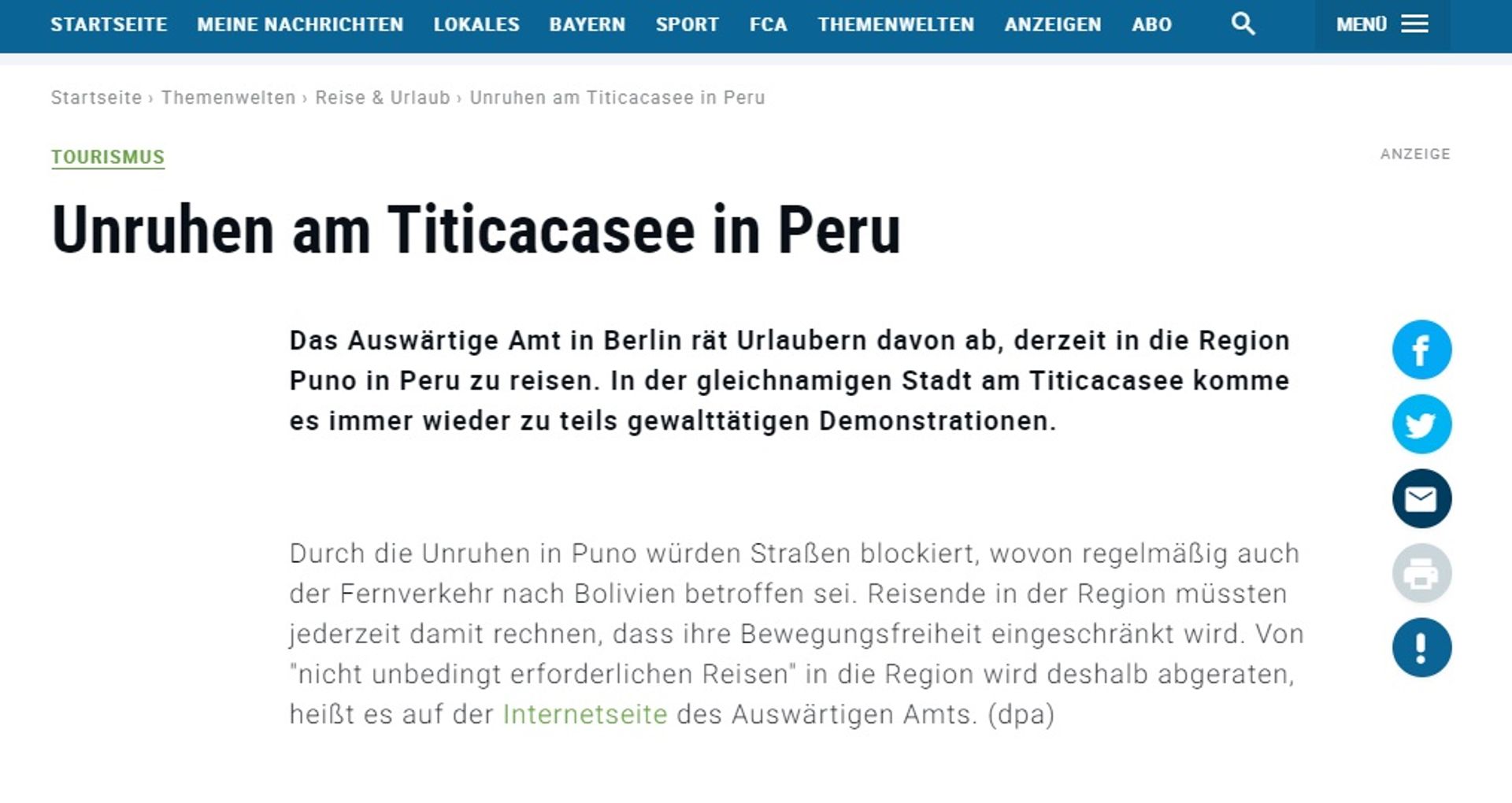
The situation here is already somewhat more relaxed. We take our belongings and walk along the main road. Although the people at the stands refuse to sell us water, there seems to be no ill will towards tourists otherwise. Around 10:30 a.m., most of the blockades dissolve. The first cars collect people who want to continue their journey. After more tough negotiations, we're in a car heading to Puno. "Today is a very special day," said one of the locals with a sly smile to justify his outrageous prices for the further journey. At this point, we couldn't care less. We just want to get away.
11 a.m. Finally, we arrive in Puno with a delay of almost 6 hours. Our bus to Copacabana has, of course, long since left. So, we spend the day here involuntarily, as it seems too risky to continue later on this "very special day." We take a look at the Titicaca which is dirty and smells like a sewer at this spot. Many shops and the market are still closed due to the protests. Puno doesn't appeal to us much. Probably because of the circumstances. We just go to bed early.
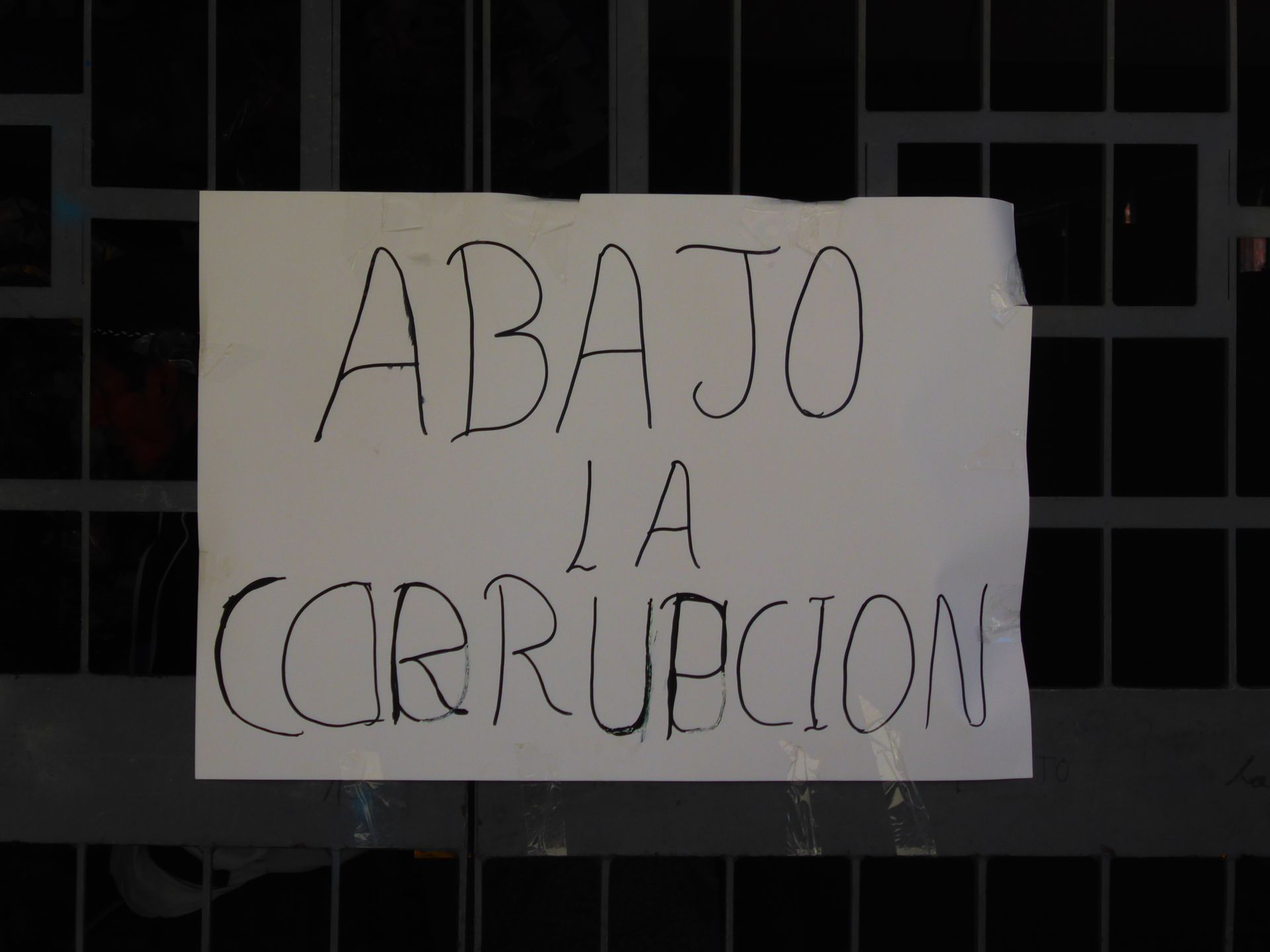
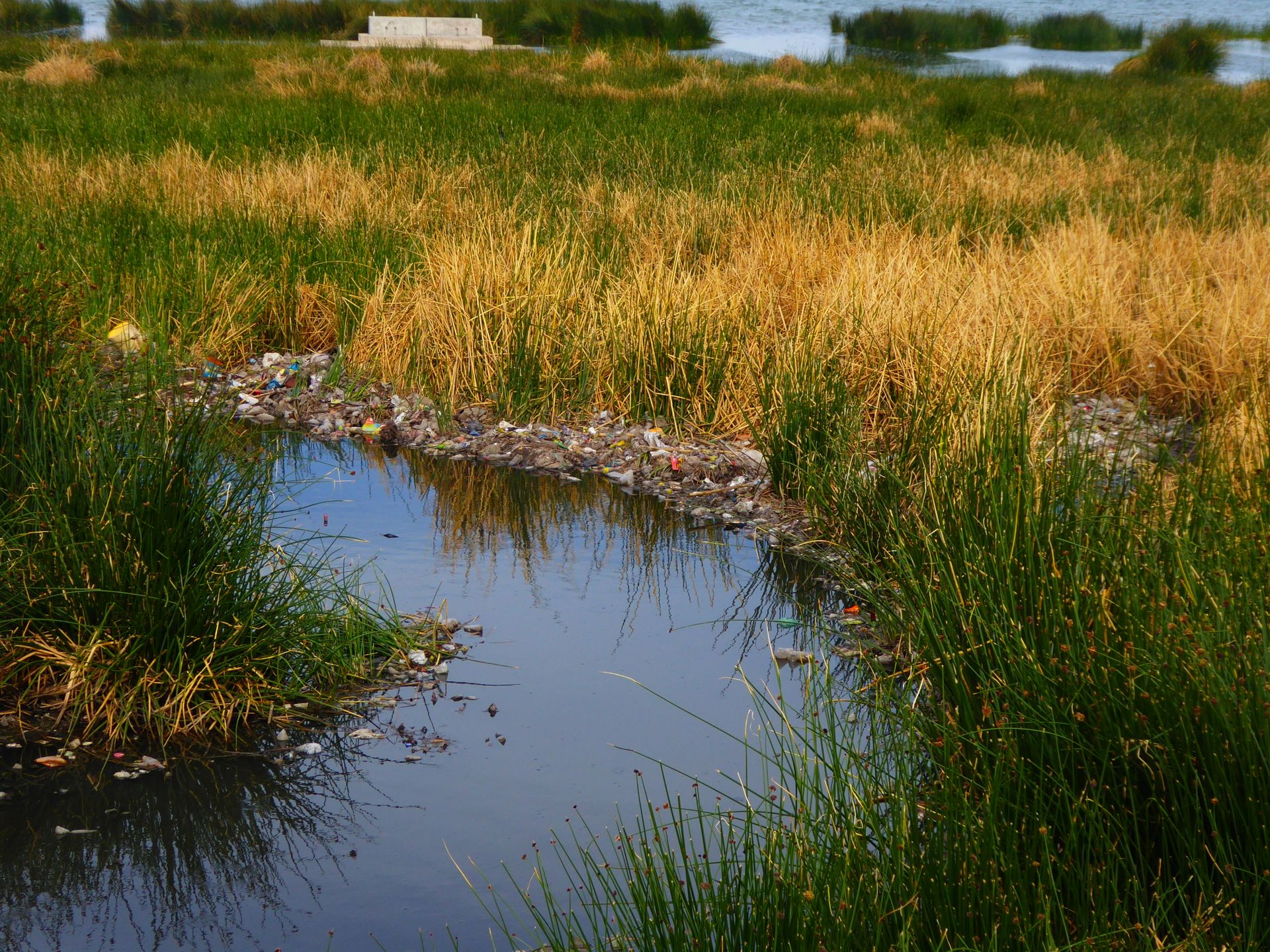
November 29, 2018
Our bus travels along the picturesque Lake Titicaca, which is incredibly vast and stretches all the way to the horizon. Our journey takes us towards the border with Bolivia. At the Copacabana crossing, we get off, exchange money, and get our stay approved without any problems. We make use of the one-hour stay in the recreation area to relax at the pier, eat, and process the events of yesterday. The continued journey in the rickety bus takes another 3 hours and is interrupted by a ferry ride, which is a welcome change.

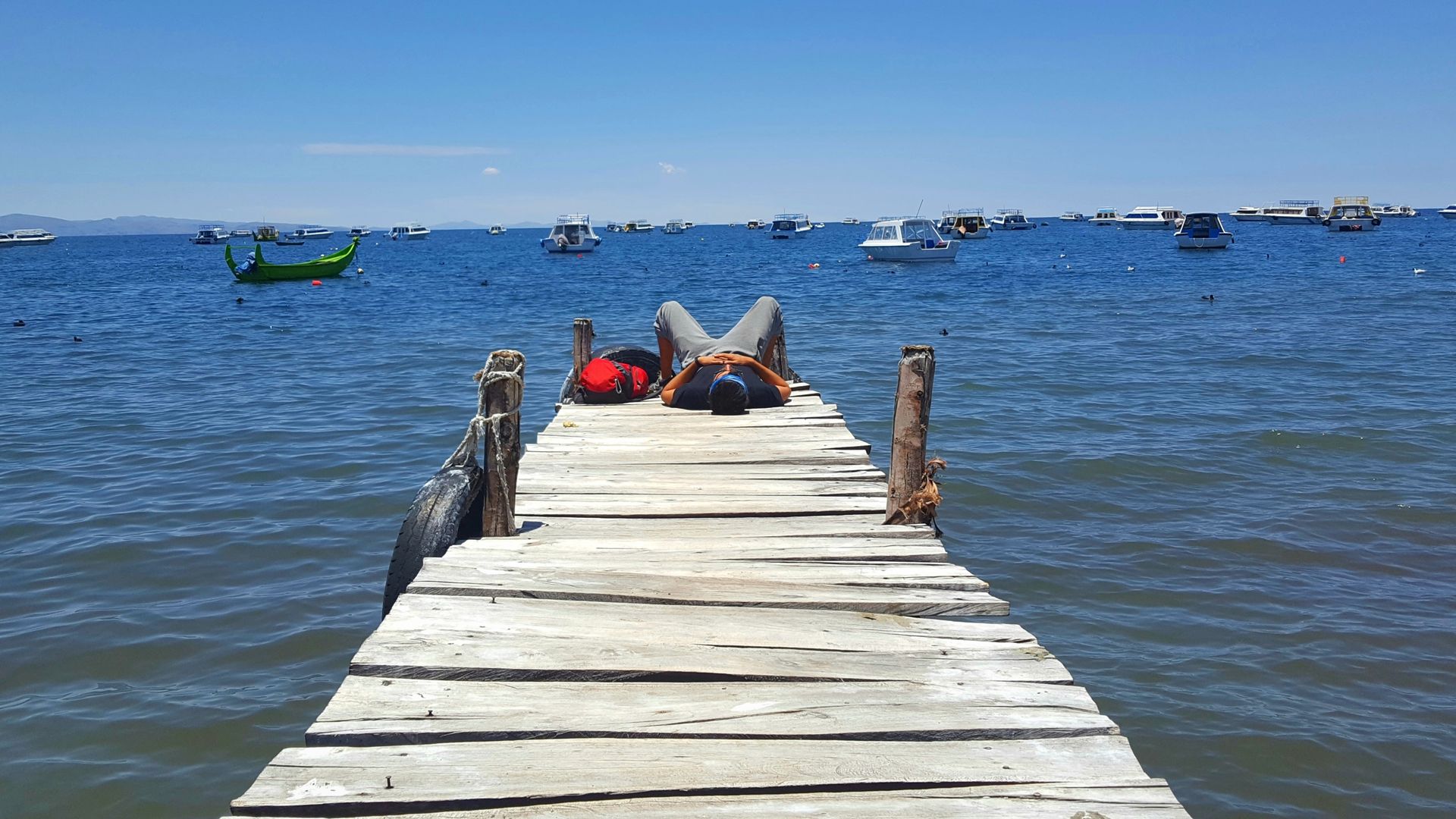
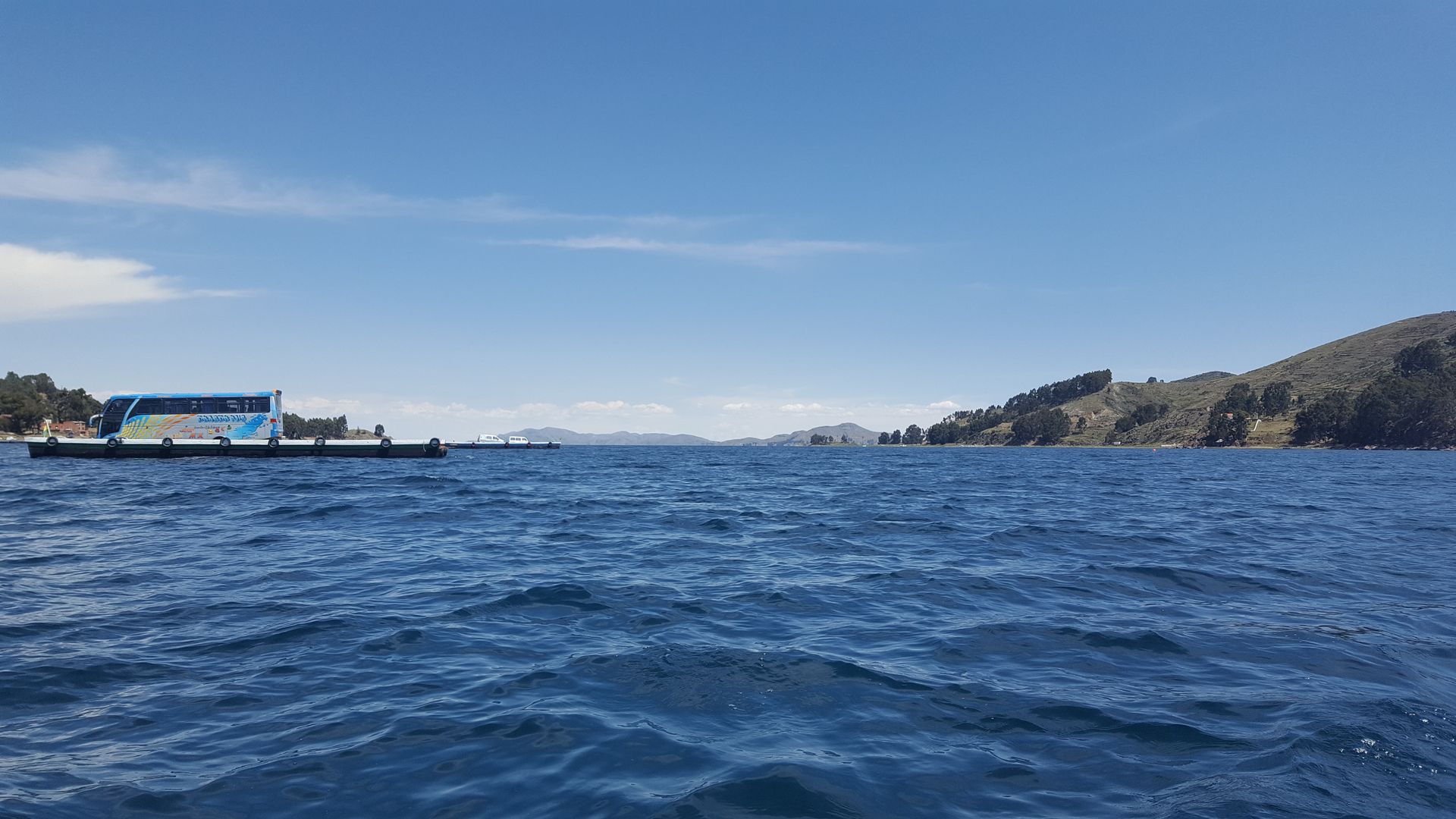
After some time, we see the city limits of El Alto, the high-altitude district of La Paz, which is less recommended for tourists. The city is congested, and further travel is hardly possible. We move at a snail's pace through the narrow streets, which are completely filled with taxis and buses. All accompanied by constant honking. Once we arrive at the terminal, we manage to get a somewhat affordable taxi to our accommodation. We do some shopping and cook a nice dinner. We really enjoy our broccoli pasta gratin today.
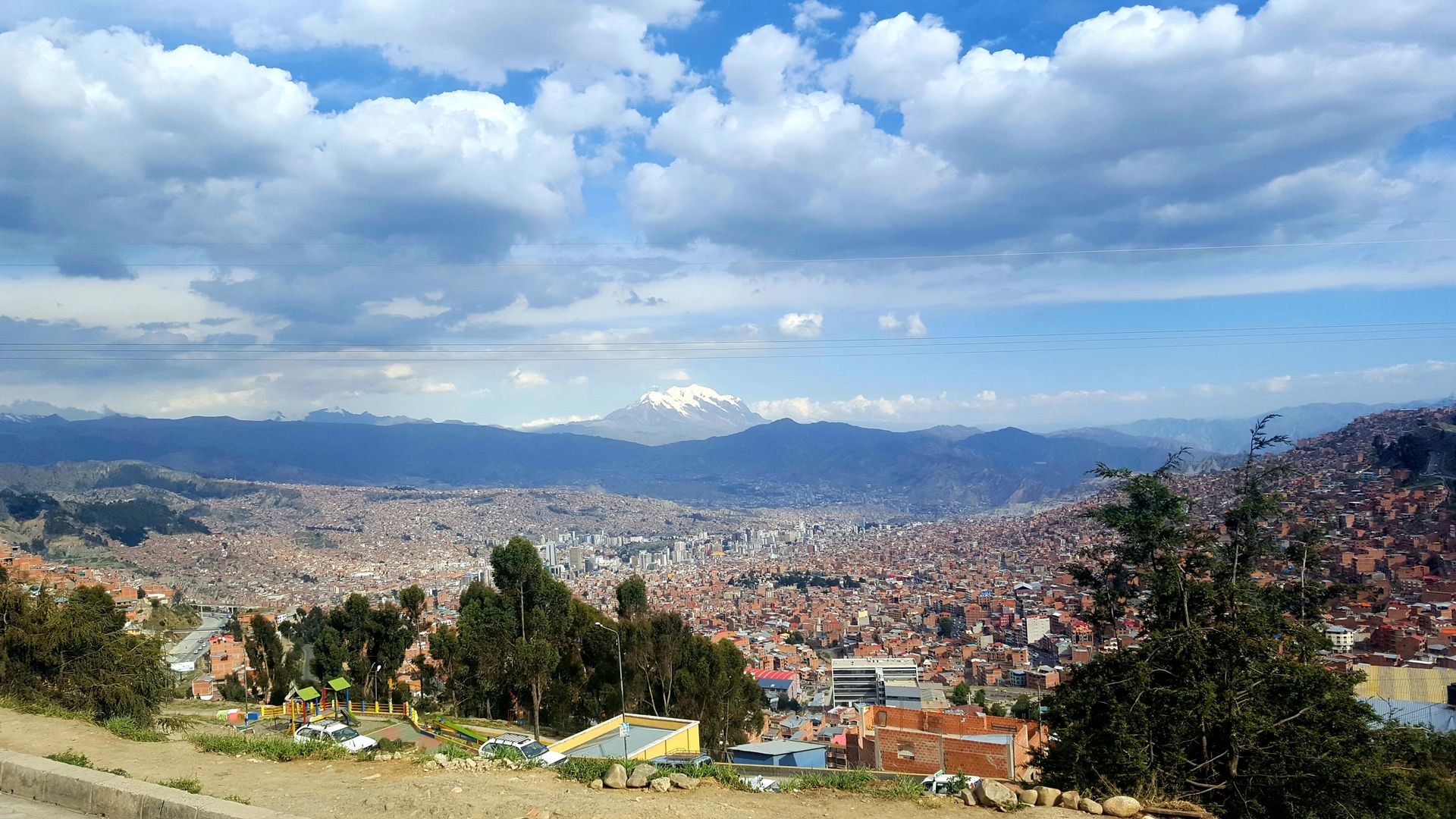
خبر پاڼه کې ګډون وکړئ
ځواب
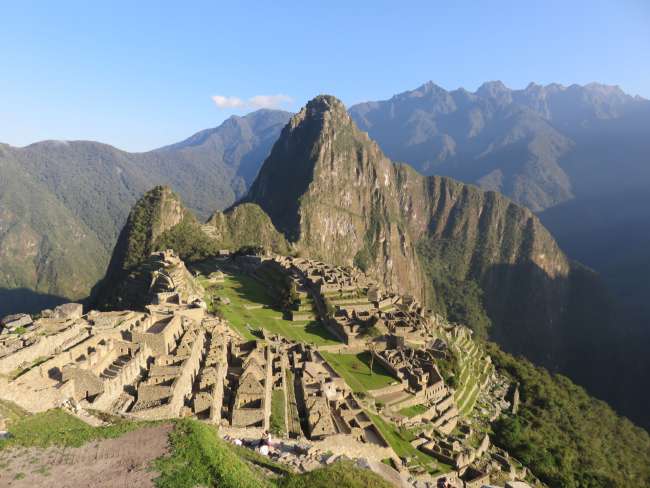
د سفر راپورونه پیرو
